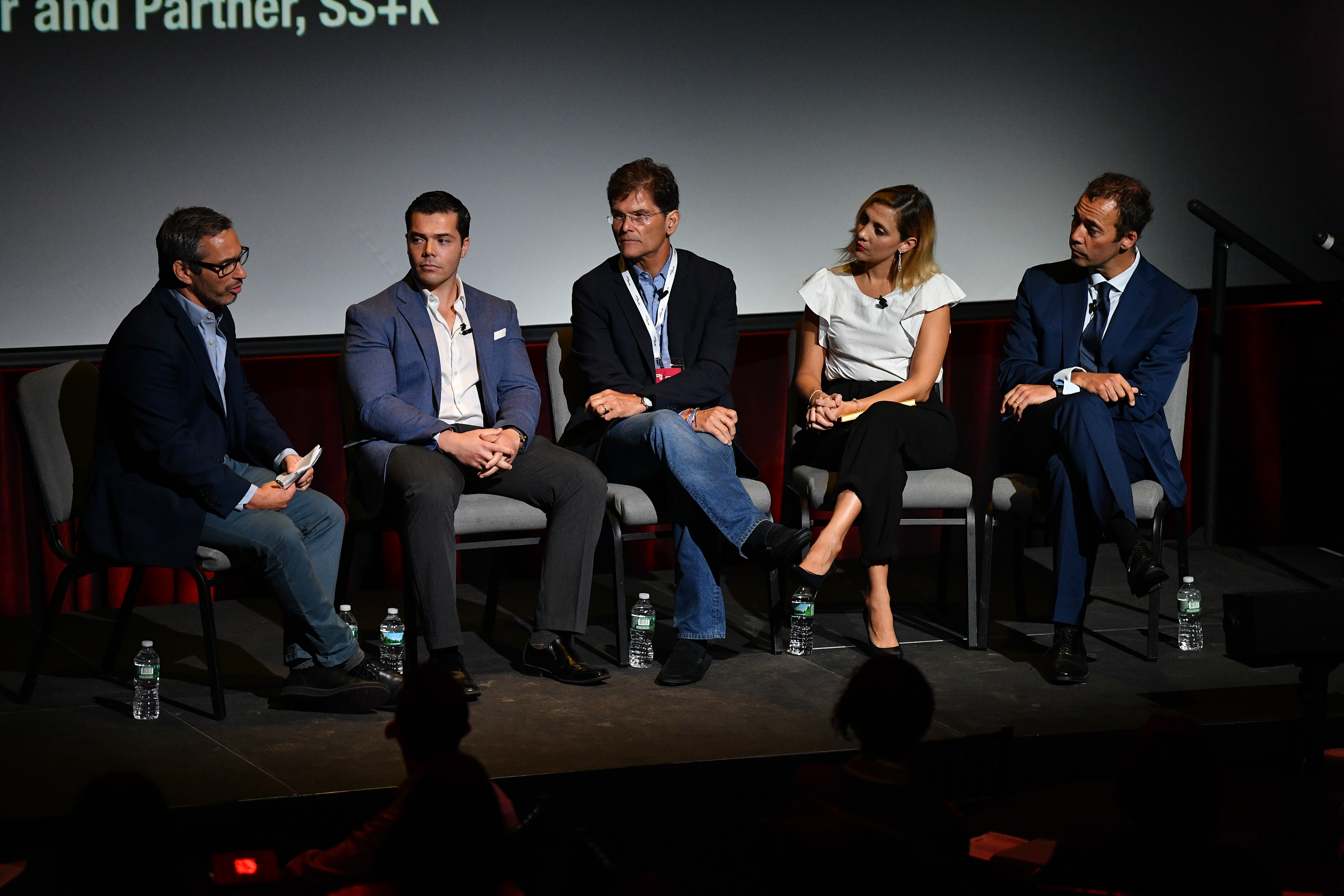
10 years, 10 questions...
An Interview with Beyond Sport Founder & President Nick Keller
AS WE CELEBRATE A DECADE OF IMPACT AND PARTNERSHIP, AND IN THE LEAD UP TO OUR BEYOND SPORT UNITED CONFERENCE AND GLOBAL AWARDS, OUR FOUNDER AND PRESIDENT SHARES ON THE INCREDIBLE JOURNEY, THE ORGANISATIONS AND PEOPLE WHO ARE INSPIRING US AND WHAT HE’S LEARNED ALONG THE WAY.
AFTER READING, WE'D LOVE TO HEAR WHAT 'GOING BEYOND SPORT' MEANS TO YOU. LET US KNOW ON SOCIAL USING #BEYONDSPORT10.
1. Corporate social responsibility, corporate citizenship and social good are increasingly core to business nowadays. But in 2008, that wasn’t necessarily the case. What did you see a decade ago that made it clear that sport could be used as a tool for greater social good and inspired you to create Beyond Sport?
Two things drove me to create Beyond Sport.
Firstly, although sport for development was happening in various places, no one was really convening everyone together. The idea was to bring together a group of likeminded individuals with a passion for sport who also a believed that sport, if used in the right way, could help uplift individuals and drive a happier, better more inclusive society.
Second was from the complete opposite scale, really. The financial crisis had taken place and we were getting the feeling that the organisations that tended to invest in sport were going to seek a place to present their brands in a better light. To find a way to reconnect with people after a period of immense mistrust and failure. I felt that sport could be a way to do that, from a more social angle rather than through professional sports. So conceptually the idea was for an organization to convene everyone together, including brands and corporates, to find a way of driving more revenue from the private sector as they sought to use sport to connect with society again.
2. How did you attract your first supporters?
Through the simple concept that sport could have a positive impact on the world. We were connecting with the good and great really – you’re talking Archbishop Desmond Tutu, Tony Blair, Adolf Ogi, who was the UN Special Advisor on Sport for Development and Peace and others. They knew that sport could play a role, so it wasn’t a difficult thing to convince them. These people, who had spent a lifetime trying to create change in politics or in religion across different ranges of society, had all come to the conclusion that sport was a very powerful catalyst for social change.
Those initial conversations, although for some would seem so difficult, weren’t because we were speaking in a common social change language. The remarkable thing was that they had done a lifetime of work of transforming countries, of defeating apartheid, of rejuvenating Great Britain, yet still they wanted to lend their name to something about sport. Not because they thought it would be nice, or that they would hang around with sport people, but genuinely having seen it all, also saw the power of sport.
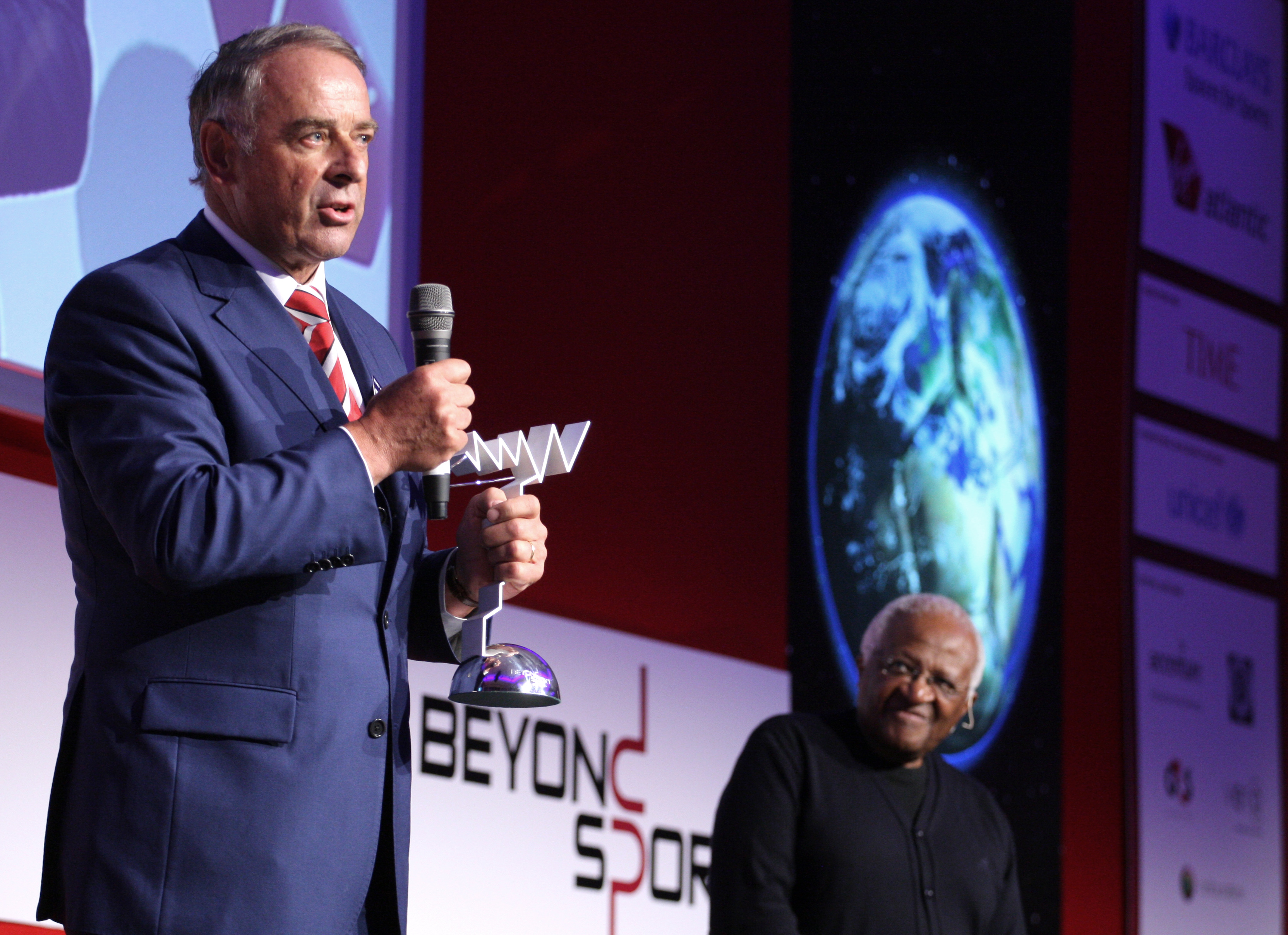
3. What are some of your inspirational and funniest memories from the early days of Beyond Sport?
Our first Beyond Sport event in London was amazing. London was three years away from the Olympic Games but the buzz had already started. It felt like we were having a conversation that people wanted. Undoubtedly the moment that still sends shivers down my spine was to have Archbishop Tutu interviewed by the great, legendary TV interviewer, Sir Michael Parkinson. It was two old guys onstage exchanging stories. It was a remarkable moment that I wished could have gone on for another hour. I suppose only to be topped by the remarkable Muhammad Ali, David Beckham moment the day before the Games in a packed room. We were the main story of the day.
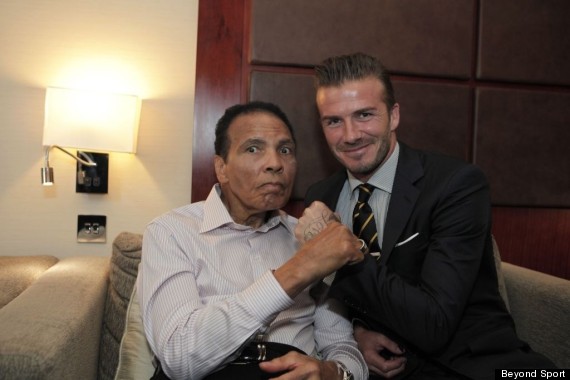
And, I also had the distinct honour, eight hours later of running with the Olympic torch through my home city. If you talk about a beyond sport moment that was it.
There were so many good moments. At our first event in 2009 we had a grumpy back row of NGO leaders who had been in sport for development for years, running these staggering projects. These were the guys and women of endless courage that I talk about. When we began, it was with this grand ambition of changing the world through sport. These guys – having come from working in Cambodia, Iraq, the favelas of Brazil -- sat with their arms folded scowling at me. The Scotty Lee’s, Luke Downdey’s, the Nick Gates’… I think we’ve proved them wrong.
4. Following not too long after Beyond Sport, sister company think Beyond was founded. Why? How does it complement Beyond Sport’s work and what sets it apart from other consulting agencies?
It was becoming increasingly obvious that some key stakeholders around sport were wrestling with how they could deliver more in terms of social change and lining up their social and business objectives. thinkBeyond was established to help those organizations bridge that gap.
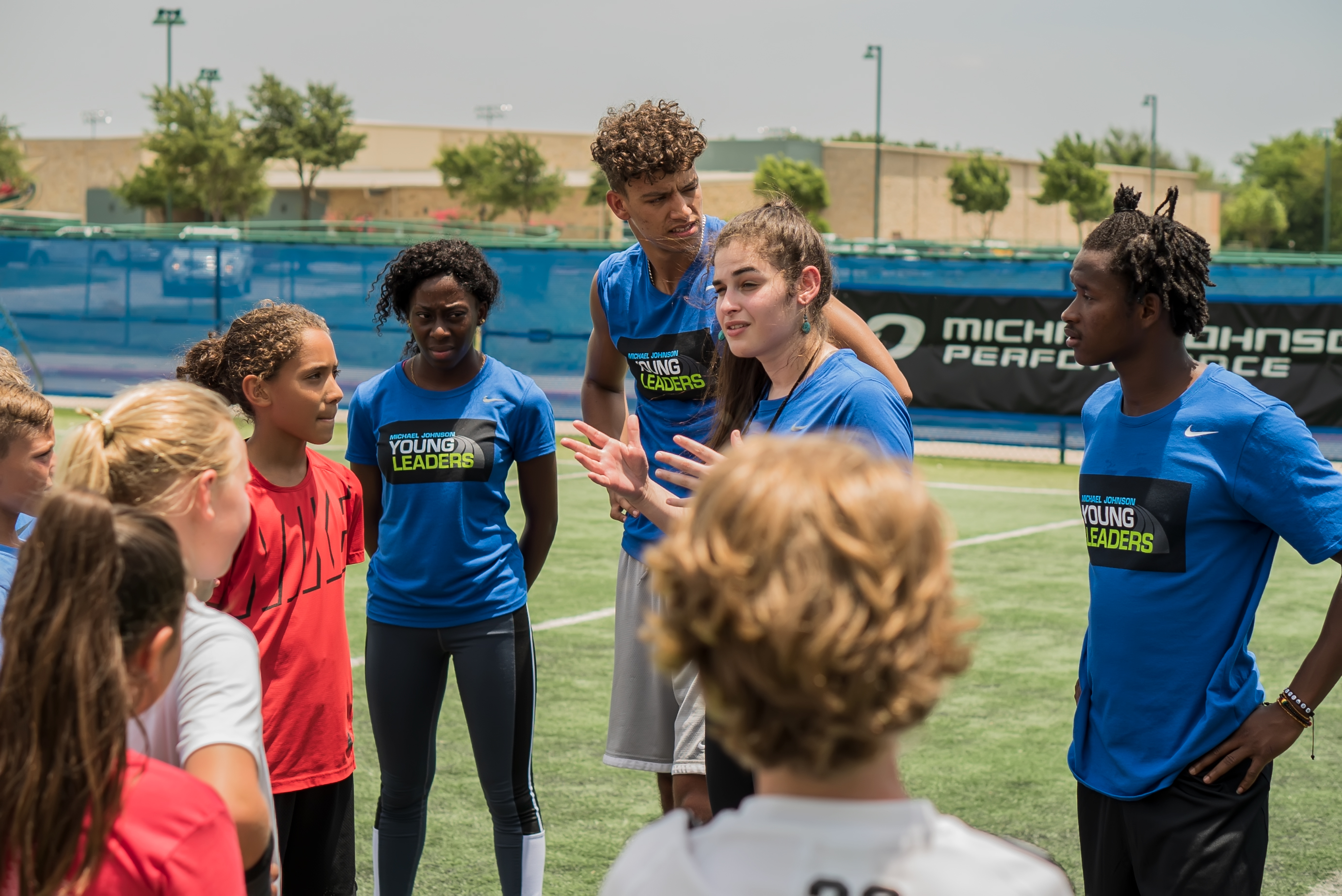
The real difference is that we can tap into a network that we built up over a significant period of time. It has a team that is highly experienced, passionate and totally ingrained in sport for social change and shared value for over 10 years, thinking about it for 365 days a year. It’s another way for us to drive more change in the right way. One of Beyond Sport’s biggest assets is its global network -- more than 2500 organisations, in 154 countries, working with 80 sports -- all playing a role in helping to realize a mission of sustainable social change through sport.
5. Beyond Sport consistently strives to bring together innovators and influencers from across the sporting world. Why is it so important to activate on a global level?
Sport is a shared language. If our role is to unearth best practice and to share it, then we need to reach into communities that are challenged and beset by a diverse range of external factors and social issues. Therefore, we have no choice but to reach beyond borders and demographics because everyone can learn one piece of insight that can help others and vice versa.
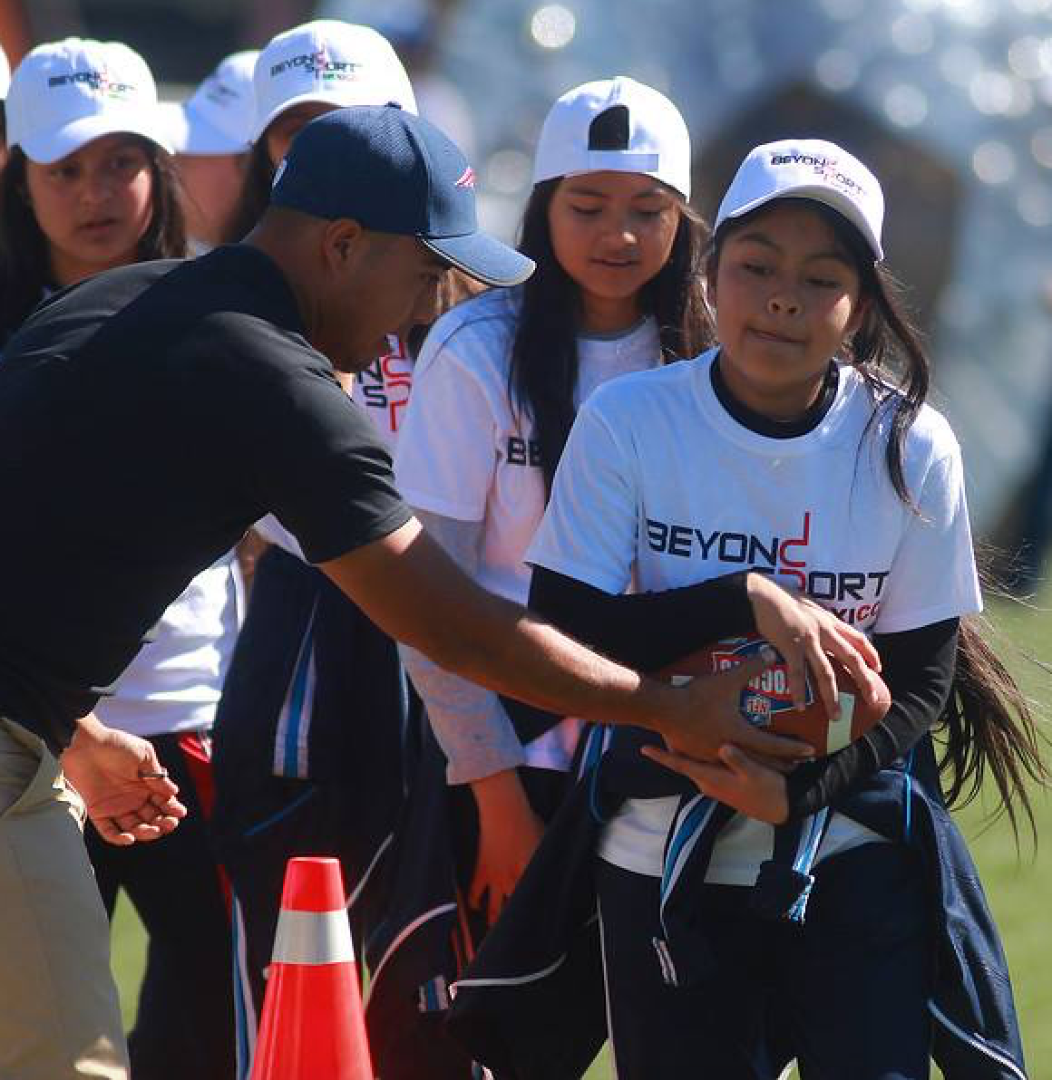
6. What has Beyond Sport learned from its partners and what value do you feel we bring them?
The startling thing about our network is that it’s made up of some of the most remarkable people bringing about change in some of the most fraught circumstances on the fringes of society. We’ve learned that bravery and risk taking have no limit. And, that courage is endless.
One of the main things we provide is an external viewpoint and vision. Ours is seen through a lens of how sport can help their organisation and connect them to some of the most impressive catalysts of change across the world. I think Beyond Sport has acted as a platform not just to promote sport and its role in society but that also allows people to find info and connect with likeminded people who have seen first-hand what’s been tried and tested. I think we’ve helped people who have been working in this for so long to not feel so alone. I remember Ana from the Colombianitos project saying, ‘I no longer feel alone. I now know that there are other people doing the same work.’ That was incredibly powerful in 2009.

7. What were the important topics in the industry at that time Beyond Sport held its first major global conference in 2009 versus today?
I’ve never seen a transformation in society like the last 18 months – how we live, how we function, how our minds work. Looking back then we saw inclusion, education and health in such a linear fashion. But now we know that all of these social issues and challenges are so multi- layered and complex. In many ways it’s much more challenging than we thought. I remember seeing sport as just a simple solution, but now, I see it as an opportunity. It represents a variety of investments, of partnerships, of collaborations and insights that all need to come together to help society grow and improve.
Back then it may have been naïve of me that I could see a world that didn’t need putting back together. It was just that we needed growing, improving; we needed to uplift people and solve problems. Now I feel that we need to put the world back together again. We’ve fragmented so much and I don’t know what the solution is anymore But I do know that sport if used correctly, can deliver back to people, communities and society.
It is also true to say that the environment in which business exists has also changed dramatically. Although it was clear the relationship between business and society needed to change it has taken nearly a decade for that to become main stream. Larry Fink’s letter to the industry earlier this year, saying that business needs to align its objectives with society for overall success, comes at a time when regulation and personal responsibility of leaders are shifting towards a more morally and ethically responsible business world.
Much of this is all driven from a change in sentiment on what we buy, who we buy from and who we work for. I see this most eloquently in the narratives of young people today.
8. Next month, the Beyond Sport United conference will bring the wealth of history from 2009 to take a special focus on youth engagement, leadership and social action. When people talk about the ‘power of sport’ to make change, what does that mean? What do you think it can do for the next generation of leaders?
I think sport has become even more important for the next generation of leaders. We’re living in a disjointed difficult time and I think it’s only going to get even more divergent and complex really. I also think that when we look at how young people engage with the world, social media has brought many benefits to society. Alongside that we need to ensure that our young people are finding communities offline as well; finding ways to share experiences and have the humanistic benefits that exist around sport. Building character, leadership, team building – all the unique elements that sport can bring. It’s vital to move sport central because how we spend most of our time isn’t conducive to an inclusive and warm society.
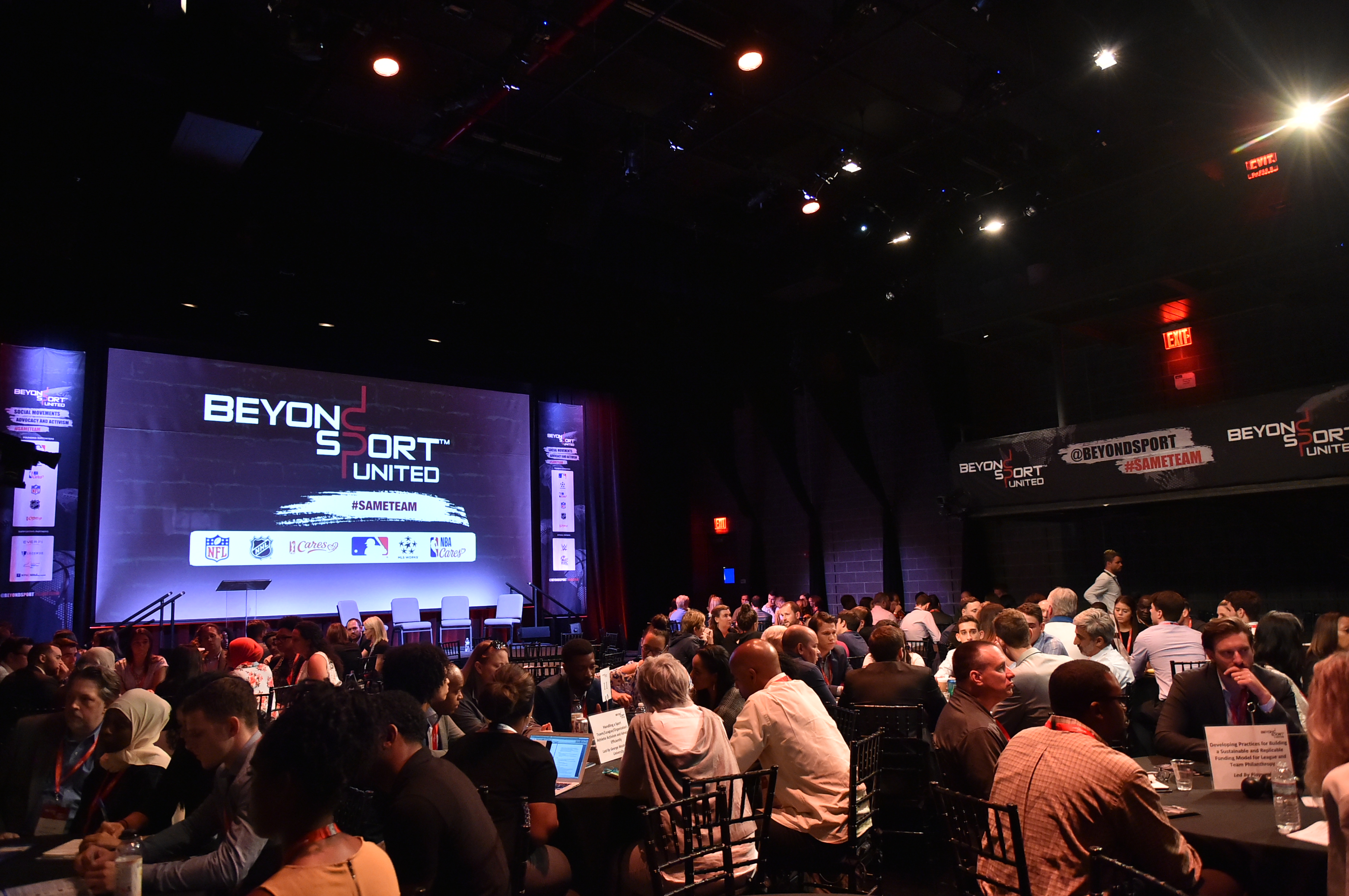
9. How do you think businesses should be and can be engaging with this socially conscious next generation?
Top end millennials are now becoming decision makers. So, let’s not forget we’re not talking about very young people anymore. They are 36 and 37-years-old. We’re talking about the budget holders of today. Businesses are being run by millennials and they have a different outlook. Number one, consumers are more discerning about their decision making and are demanding ethical business practices. Number two, they are also more conscious of who they work for, which is shifting the way companies retain and attract talent. If they are thinking like that, then business needs to think like that.
10. Through the ups and downs of the organisation, what would you say has been the key learning that Beyond Sport will look to build on for the future. What is your hope for the next decade, your ‘Vision 2028’?
We have to become more ingrained in the global governance community. I think the UN SDGs and our connection to the Global Goals is helping us talk in a language that not only the sports world understands, but also the business world and global governance is starting to see that. In reality, sport as catalyst for change has always been a bit of whether it can protect children or improve education or health. My hope and belief is that if Beyond Sport can continue, sport can get more recognition for its capacity to have a huge impact.
We’ve never been more needed. We talk about sports’ unifying power and its ability to build character. There can’t be many of us in the world who aren’t feeling that we are getting more and more disconnected. My hope is that the people who work in our sector are supported, recognised and funded so that they can get on with their work, rather than worrying about where their next dollar is coming from.
BONUS: In 10 words, what does 'going beyond sport' means to you?
Convening the world of sport to inspire and create better communities.
NOW IT'S YOUR TURN, LET US KNOW WHAT 'GOING BEYOND SPORT' MEANS TO YOU IN 10 WORDS ON SOCIAL USING #BEYONDSPORT10!